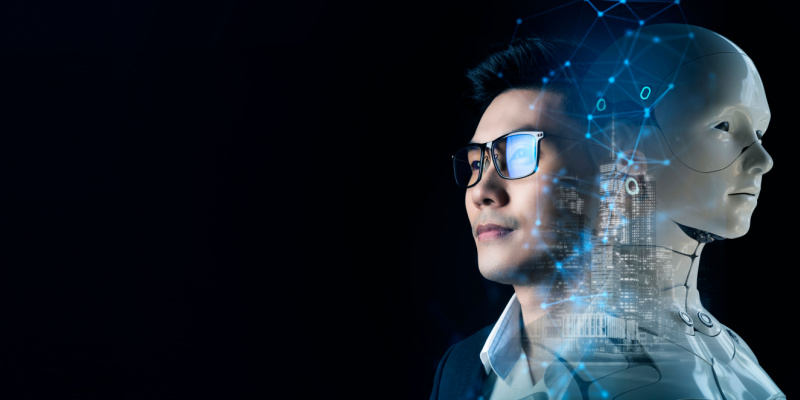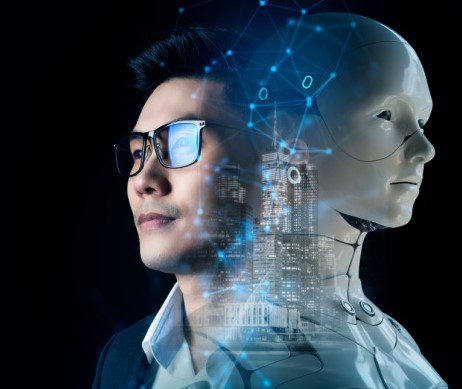The Impact of AI on Human Life: Transforming the Way We Live and Work
Over the past few years, Artificial Intelligence (AI) has made significant progress, bringing about profound changes in various aspects of our lives. While AI holds tremendous benefits, it is crucial to recognize and address the potential risks associated with its development and use. In this blog post, we will explore the possible challenges of AI, discuss strategies to mitigate its risks, examine ethical considerations, envision its future, and understand its impact on jobs and society. Let’s dive into this captivating subject and explore the obstacles and opportunities that AI presents.

Potential Problems of AI:
- Unintended consequences: AI systems may display unforeseen behaviors and make decisions that could be undesirable or even harmful.
- Lack of transparency: Some AI algorithms are highly intricate and difficult to interpret, making it challenging to understand the rationale behind certain decisions.
- Safety concerns: If AI systems are not carefully designed and tested, they may pose risks to physical and digital security, potentially resulting in accidents or malicious misuse.
- Human trust and accountability: Excessive reliance on AI systems can diminish human accountability and decision-making capabilities.
Mitigating Risks of AI:
- Robust regulations: Governments and organizations should establish clear guidelines and regulations to ensure responsible development and use of AI technologies.
- Frameworks: Developers and researchers should adhere to ethical principles such as transparency, fairness, and accountability when designing AI systems.
- Explainability and interpretability: Efforts should be made to create AI models and algorithms that are transparent, interpretable, and explainable, enabling humans to comprehend and validate their decisions.
- Continuous monitoring and auditing: Regular monitoring and auditing of AI systems can help identify biases, errors, and potential risks, ensuring their safe and responsible operation.
Ethical Considerations of AI:
- Bias and discrimination: AI systems can perpetuate biases present in training data, leading to discriminatory outcomes in areas such as hiring, loan approvals, and criminal justice.
- Privacy and security: The increasing use of AI raises concerns about the collection, storage, and use of personal data, emphasizing the need for robust privacy and security measures.
- Ethical dilemmas: AI can present complex ethical dilemmas, such as the decision-making process in autonomous vehicles or the use of AI in warfare, requiring careful consideration and public discourse.
The Future of AI:
- Enhanced efficiency and productivity: AI has the potential to revolutionize industries by automating repetitive tasks, optimizing processes, and allowing humans to focus on more valuable work.
- Healthcare advancements: AI can transform healthcare by assisting in disease diagnosis, drug discovery, personalized medicine, and improving patient outcomes.
- Human-AI collaboration: The future of AI lies in fostering a symbiotic relationship between humans and machines, combining human creativity, intuition, and empathy with AI’s analytical and computational capabilities.
Preparing for the AI Economy:
- Lifelong learning: Continuously upskilling and reskilling will be crucial to adapt to the changing job market and take advantage of the opportunities offered by AI.
- Emphasizing human skills: Developing and refining uniquely human skills such as critical thinking, creativity, emotional intelligence, and problem-solving will be valuable in a world increasingly driven by AI.
Impact on Jobs:
- Job displacement and transformation: AI automation may eliminate certain jobs but will also create new opportunities and roles that require AI expertise.
- Emphasis on high-skilled jobs: While low-skilled jobs may be at risk, there is likely to be an increased demand for high-skilled professionals in AI development, data analysis, and AI ethics.
Addressing Inequality:
- Potential for increased inequality: The uneven distribution of AI resources and skills may worsen existing societal inequalities if not proactively addressed.
- Policies for inclusivity: Governments, organizations, and educational institutions must prioritize equitable access to AI education, training, and opportunities to bridge the digital divide.
Controlling AI:
- Designing safe AI systems: Implementing fail-safe mechanisms, creating regulatory frameworks, and adhering to ethical guidelines can help maintain control over AI systems.
- Human oversight: Retaining human oversight and decision-making authority is essential to prevent unchecked AI autonomy.
Existential Threat and Risk Mitigation:
- While AI presents risks, it is crucial to focus on responsible AI development and implement safeguards to mitigate potential existential threats.
- Collaboration and global governance: International cooperation and interdisciplinary collaboration are vital for establishing global AI governance frameworks and collectively reducing risks.
Challenges and Impacts on Humans:
- Psychological impact: The integration of AI into daily life may raise concerns about human agency, loss of privacy, and reliance on AI systems.
- Human-AI partnership: Cultivating a positive relationship between humans and AI involves addressing psychological concerns and ensuring that AI complements human capabilities rather than replacing them.
Conclusion:
Artificial Intelligence holds immense potential for humanity, but its development and deployment must be accompanied by proactive measures to mitigate risks and ethical considerations. By prioritizing transparency, fairness, and human values, we can harness the power of AI to enhance our lives while safeguarding against potential pitfalls. As AI continues to evolve, it is our responsibility as a society to navigate its challenges and leverage its benefits for the greater good.
Now let’s address the specific questions:
1. How will AI affect jobs?
AI automation has the potential to both eliminate certain jobs and create new opportunities. While some low-skilled jobs may be at risk of displacement, there will likely be an increased demand for high-skilled professionals in AI development, data analysis, and AI ethics. Adapting to the changing job market and acquiring AI-related skills through continuous upskilling and reskilling will be crucial for individuals to thrive in the AI economy.
2. Will AI lead to increased inequality?
There is a potential for increased inequality due to the uneven distribution of AI resources and skills. If not proactively addressed, AI could exacerbate existing societal inequalities. It is essential for governments, organizations, and educational institutions to prioritize inclusivity and ensure equitable access to AI education, training, and opportunities. By bridging the digital divide, we can work towards minimizing the potential for increased inequality.
3. Can humans control AI?
Humans can exert control over AI systems through the design of safe AI systems, implementing fail-safe mechanisms, and establishing regulatory frameworks. Human oversight and decision-making authority are crucial to prevent unchecked AI autonomy. By maintaining a responsible approach to AI development and adhering to ethical guidelines, we can ensure that AI remains a tool that serves human interests and values.
4. Is AI an existential threat to humanity?
While AI presents risks, it is important to focus on responsible AI development and deploy safeguards to mitigate potential existential threats. By prioritizing safety, ethics, and global collaboration, we can minimize the likelihood of AI becoming an existential threat. International cooperation and interdisciplinary collaboration are essential for establishing global AI governance frameworks that address the risks associated with AI in a collective manner.
5. What can we do to mitigate the risks of AI?
To mitigate the risks of AI, several strategies can be employed:
– Establish robust regulations to ensure responsible development and use of AI technologies.
– Adhere to ethical principles such as transparency, fairness, and accountability in AI system design.
– Promote the development of explainable and interpretable AI models to enable humans to understand and validate their decisions.
– Regularly monitor and audit AI systems to identify biases, errors, and potential risks.
– Prioritize inclusivity and equitable access to AI education, training,and opportunities.
– Foster global collaboration and interdisciplinary cooperation to address the challenges and risks associated with AI collectively.
By implementing these measures, we can navigate the path of AI development while mitigating its potential risks and maximizing its benefits for humanity.
Read our other Posts.

